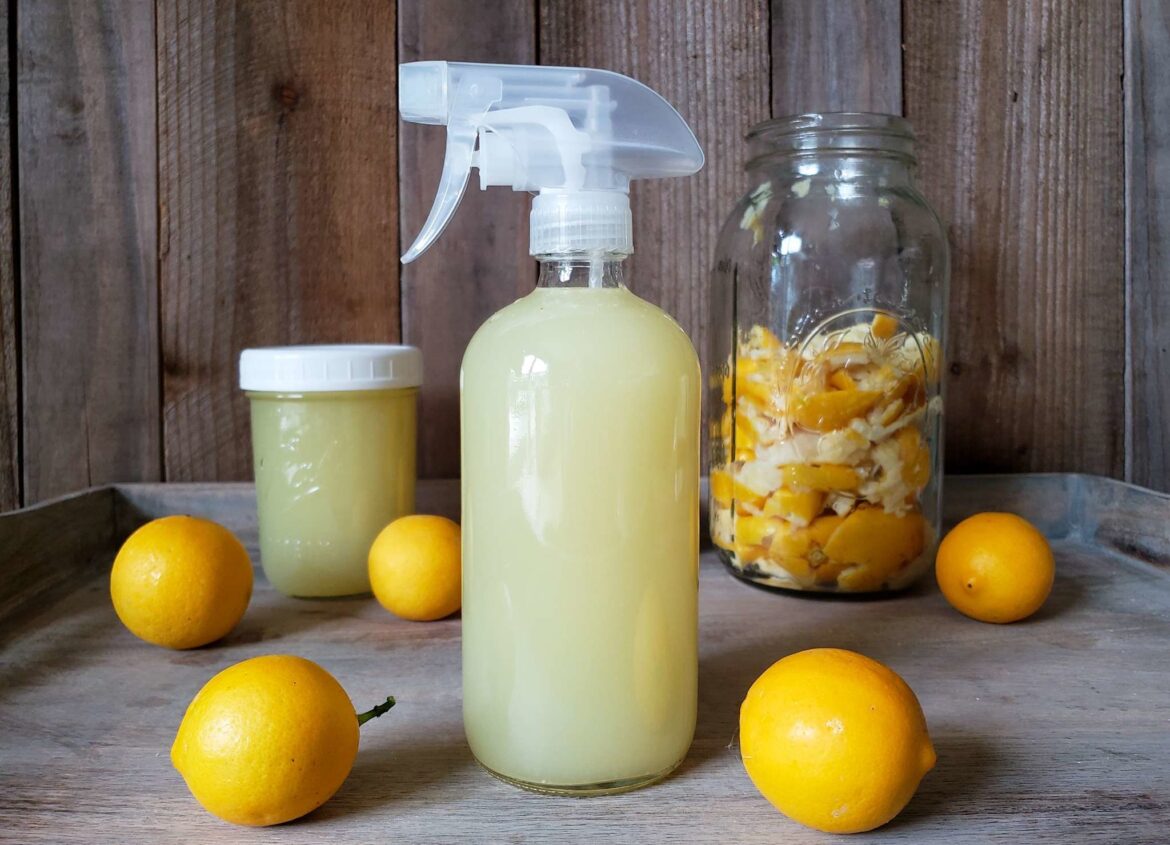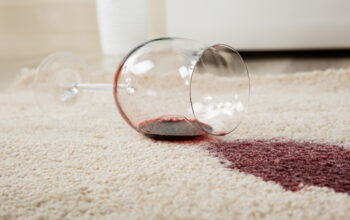How to Make Your Own Antibacterial Kitchen Cleaner?
Many people believe that antibacterial kitchen cleaners are essential for keeping their kitchens clean and free of bacteria. But what is the reality behind these products? And is there a better way to clean your kitchen without resorting to harsh chemicals? In this blog post, we will explore how to make your own antibacterial kitchen cleaner using natural ingredients. Not only will you be able to avoid harsh chemicals, but you will also be helping to keep your kitchen clean and free of harmful bacteria.
What is a natural antibacterial for cleaning?
When it comes to keeping your kitchen clean, white vinegar is a natural antibacterial agent that can be used in a variety of ways. For example, it can be used as a household cleaner to get rid of gummy buildup, rust, and hard water stains. Additionally, white vinegar can also be used as a natural deodorizer. Simply fill a spray bottle with white vinegar and spritz the area you want to clean. The acidic properties of the vinegar will help to remove any residual odors.
How to make your own antibacterial kitchen cleaner
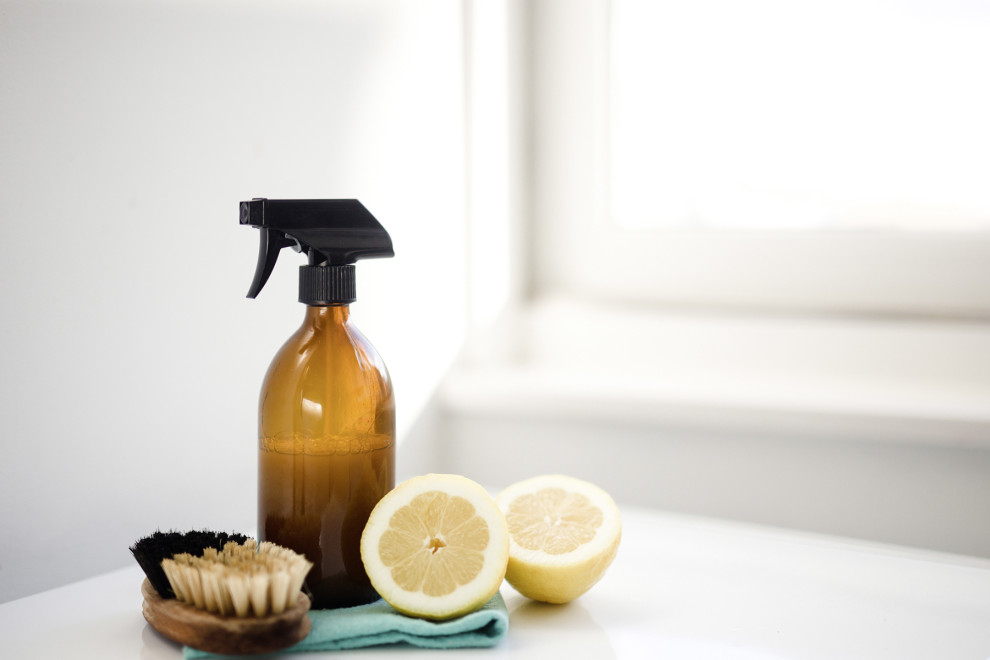
People often think that antibacterial cleaners are only for the kitchen, but there are plenty of ways to use them around the home. In this tutorial, we will show you how to make your own antibacterial cleaner using just water, white vinegar and a few drops of lavender or tea tree essential oil. This mixture is great for cleaning cutting boards, countertops, and other areas around the house that need a good germ killing!
All natural kitchen cleaners are great alternatives to store-bought cleaners. Not only are they environmentally friendly, but they can also be made with just a few ingredients that you probably already have in your home.
What is the strongest natural disinfectant?
Alcohol is one of the most effective alternatives to chemical disinfectants. It can be used to clean surfaces and items, as well as kill bacteria. Simply mix ¾ cup of white wine with 1 tablespoon of vinegar and use it as a household cleaner or in the kitchen to sanitize food and surfaces.
Does baking soda disinfect?
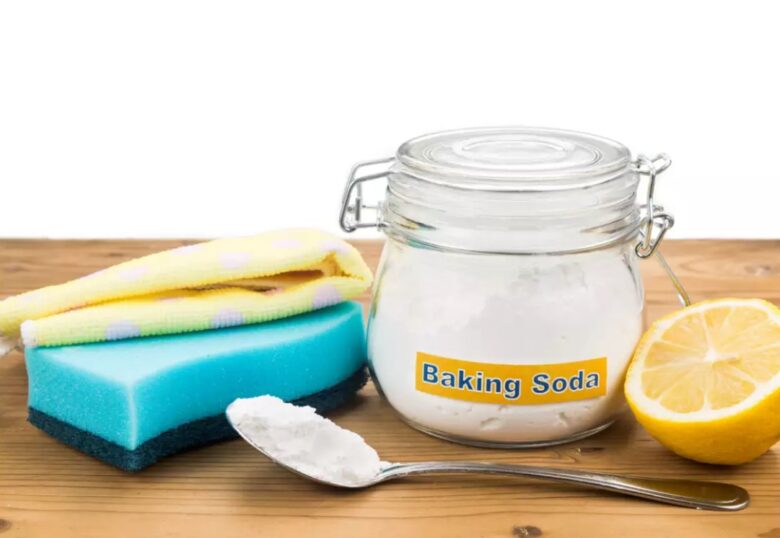
Baking soda is not a disinfectant. It is ineffective against most bacteria, including salmonella, E. coli and other foodborne pathogens. To be effective, baking soda needs to be mixed with an acid, such as vinegar or lemon juice.
Which is the most common method to sanitize kitchen surfaces?
There are three methods of using heat to sanitize surfaces – steam, hot water, and hot air. Hot water is the most common method used in restaurants.
Steam sanitizes with microorganisms removing through evaporation. It is effective at killing bacteria, viruses, and molds. To use steam, place the object or surface to be sanitized into a receptacle filled with steaming water. Make sure the surface you are sanitizing is completely wet before adding the steaming water. Cover the object or surface with a cloth so that it does not come into contact with the water. Wait five minutes, then remove the cloth and check for any signs of bacterial contamination. If there is no contamination, repeat the process by immersing the object or surface again for another five minutes.
Hot air uses high-frequency currents to kill microorganisms. Place an object or surface to be sanitized in front of a fan that has been turned on full blast. Wait ten seconds, then check for any signs of bacterial contamination. If there is no contamination, wait thirty seconds and check again; if there is still no contamination, keep waiting thirty seconds before checking again. Repeat this process until there is bacterial contamination present.
What 2 ingredients do you need to make a sanitizing solution?
There are two main ingredients that you’ll need to make your own hand sanitizer: isopropyl or rubbing alcohol (99% alcohol volume) and aloe vera gel. If you want to use lemon juice, it can be substituted for the aloe vera gel.
You’ll also need an essential oil, such as tea tree oil or lavender oil. Or, you can use lemon juice instead. Add the essential oil to the isopropyl or rubbing alcohol, and stir until combined.
Pour the mixture into a small spray bottle, and give it a few tests in different areas of your kitchen to make sure it’s effective. Be sure to store your hand sanitizer in a cool, dry place away from direct sunlight.
How do you deep clean countertops?
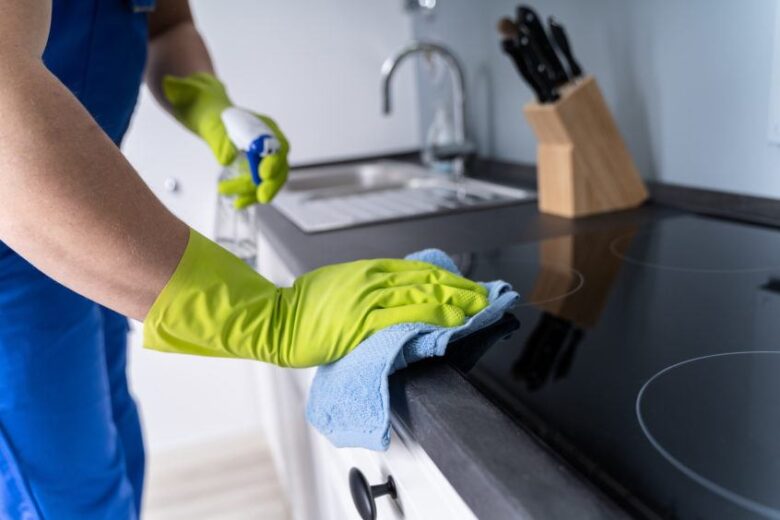
The average person spends more time in their kitchen than any other room in their home. And with good reason – it’s where you cook, clean and eat your meals! But the kitchen isn’t just a place for food – it’s also a working space and a place where germs can spread. That’s why it’s important to keep your kitchen clean and germ-free.
One way to keep your kitchen clean is to use antibacterial household cleaner. Antibacterial cleaner kills bacteria, which means that it helps to keep your kitchen clean and free from Germs. Here are three simple steps on how to make your own antibacterial kitchen cleaner:
1) First, gather all of the ingredients you need for your dish soap: water, dish soap and a cloth. If you have hard water, add some bleach or chlorine bleach to the mixture as well.
2) Soak the cloth in warm water before using it to wipe down your countertops. Make sure that you wet the entire countertop before using the cloth; otherwise, the suds will run out quickly and you won’t be able to finish cleaning the whole surface.
3) Wipe down the countertop with the dampened cloth; then reapply dish soap if necessary. Afterward, thoroughly rinse out your cloth until the soap is gone. Rewet it with warm water, and use it to rinse off the suds from your countertops.
By following these simple steps, you can keep your kitchen clean and free from Germs.
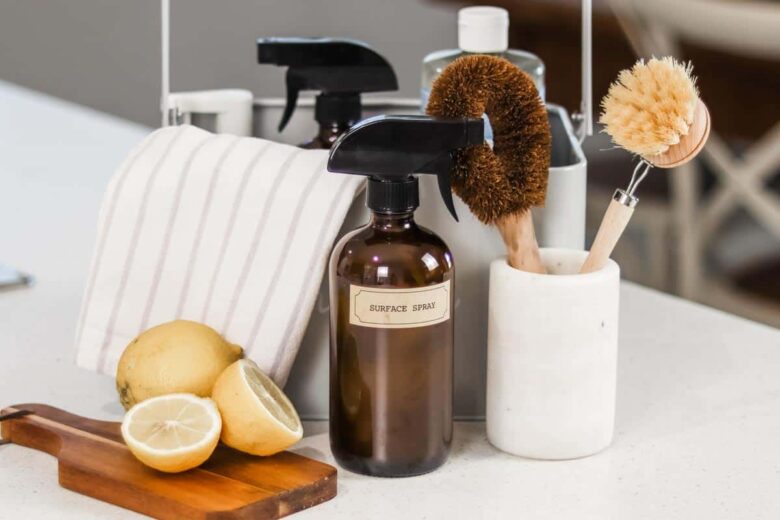
Conclusion
If you’re tired of using harsh chemicals to clean your kitchen, or if you just want to make your own cleaner that is effective against bacteria, this article will show you how. In addition to being safe for the environment and kind to your hands, this homemade antibacterial cleaner is also economical. Give it a try the next time you have a mess in the kitchen!

